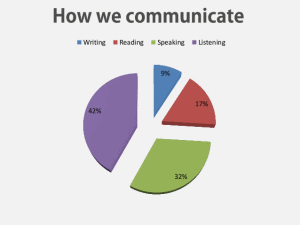Listening is what makes us learn our mother tongue. Way before a child learns to speak, read or write, he learns to listen and comprehend and it contributes to the development of the other 3 language skills.
But how important are listening skills when it comes to learning a foreign language?

It means if you are planning to work or study in Korea or with Koreans in any other country, you will be spending a lot of time doing Korean listening. So, if you have good Korean listening skills, your chances of getting success will be higher.
Improving your Korean listening skills has many other benefits:
• If you are good at listening, chances are you will also be good at other 3 language skills, i.e. speaking, reading and writing.
• If your Korean listening skills are good, you will be able to enjoy Korean movies, drama and music much more.
• You will be able to comprehend Korean TV shows, News, podcasts etc. and this will lead to a better understanding of Korea, its society, economy etc.
• You will be able to communicate better with Korean people.
So, how can we improve our Korean language listening skills? Here we are sharing with you 5 proven techniques to improve your Koran listening comprehension skills:
Expose yourself to more Authentic Native Language – Listen a Lot
This sounds quite obvious, isn’t it. The more you listen, the better your listening skills will be. If you are in Korea, it should be very easy for you. Step out of your room and listen to people talking in buses, streets and shops. Make some Korean friends and talk to them. But make sure that when you communicate with native Koreans, they speak in Korean. It may sound weird but I have seen people meeting with intention to do language exchange. In such meetings, the foreigner speaks Korean while the Korean person tries to speak as much English (or any other foreign language) as possible. A better way would be to just divide time slots and converse in one language at a time. Because listening to the native speech is equally important to improve your Korean. If you are not in Korea, you can use YouTube to watch videos made by native Koreans. You can watch Korean dramas and movies, listen to podcasts. You can also make some language exchange friends online and converse with them over Skype for 5-10 minutes everyday.
Listen to Something You Enjoy
Don’t listen to boring audio CDs or news if you are not enjoying them. If you don’t enjoy listening and understanding something, you will ultimately get bored and give up. Find the things/topics that you love to talk or know more about and find listening material on those topics. If you love finance and politics, there is no need to forcefully watch Korean drama. Rather you should find TV shows or podcasts with talks and debates on politics and finance. Because you have some background knowledge in that field and like to talk about it, you will enjoy listening more; you will focus more on the sentences. While listening, don’t try to understand each and every word and sentence. Getting the gist of the meaning is more important. If you can keep up with the flow of the audio, you are fine.
Do Active Listening
There is difference between hearing and listening. We pay attention to understand the meaning when we listen. Active listening is a step above that. When you do active listening, you not only aim to understand the meaning but you also pay attention to the linguistic elements used – like grammar, vocabulary, pronunciation and intonation. Whenever you get an opportunity to listen to a native speaker, be it in a face to face communication or through a computer or TV, pay attention to how they frame their sentences, how they express different ideas and the way they speak it. These things are not any less important than the meaning of the sentences.
Also Read: 10 Ways to Improve your Korean Writing Skills
Use Subtitles or transcripts
When you watch a drama or movie for the first time, try to watch it without subtitles, even if you don’t understand many things. Then the second time watch it with Korean subtitles. Now you have some understanding of the content already, so you will be able to read subtitles faster and you will also be able to focus more on the sentence structures. If you can find a transcript or the subtitle text file of the video, read it while listening to the audio.
Focus on Pronunciation, Intonation and Fillers
When you listen to a native Korean speaker, don’t just focus on the grammar and vocabulary; focus on the pronunciation of the words and the intonations used to express emotions. Also notice what kind of fillers they use to make the conversation more natural (like – 아~, 그러게, 그러네요, 글쎄, 뭐, 그렇구요, 그렇지요). Try to imitate these styles when you speak. It also helps to write a conversation on a paper, record it in your own voice using natural intonation and fillers and then listen to it. That way you will know how natural you sound and where you need to improve more.
Also Check: 10 Ways to Improve your Korean Speaking Skills


